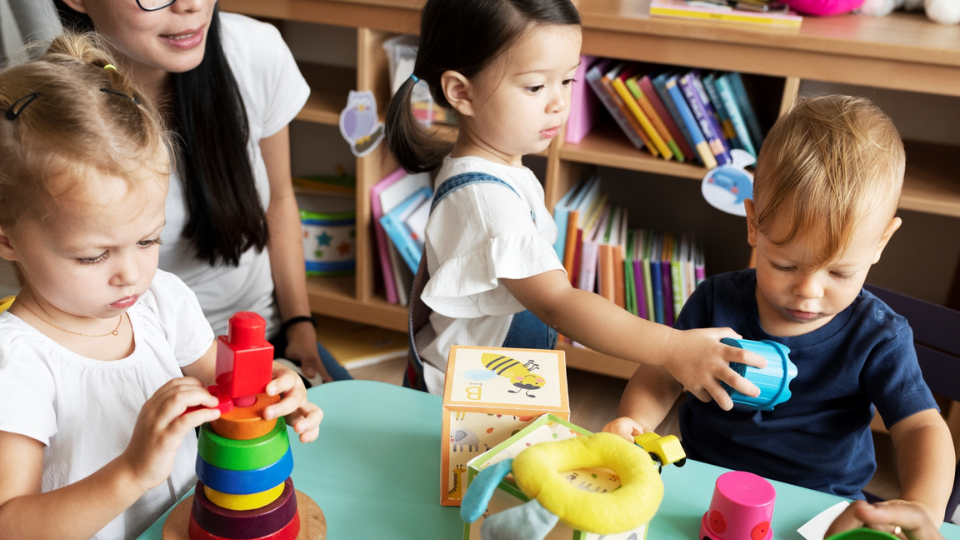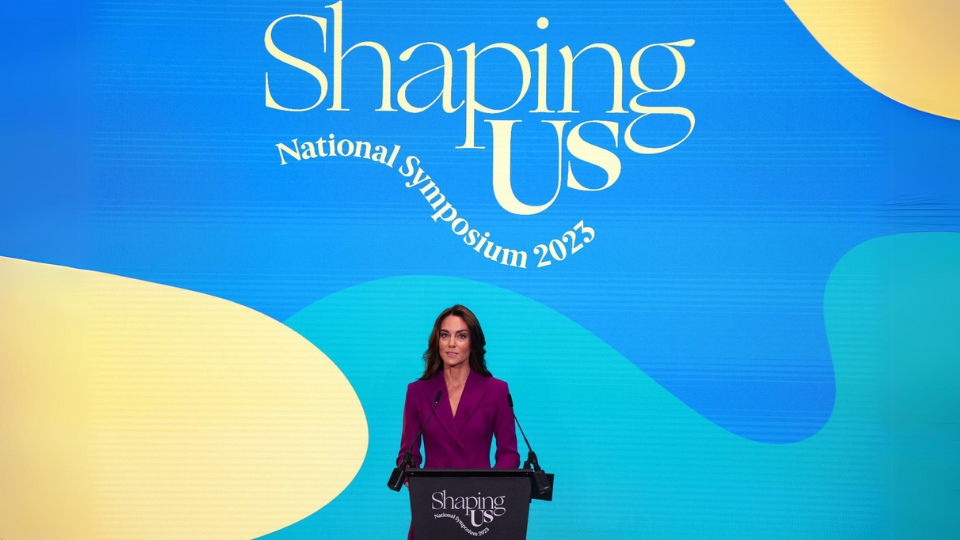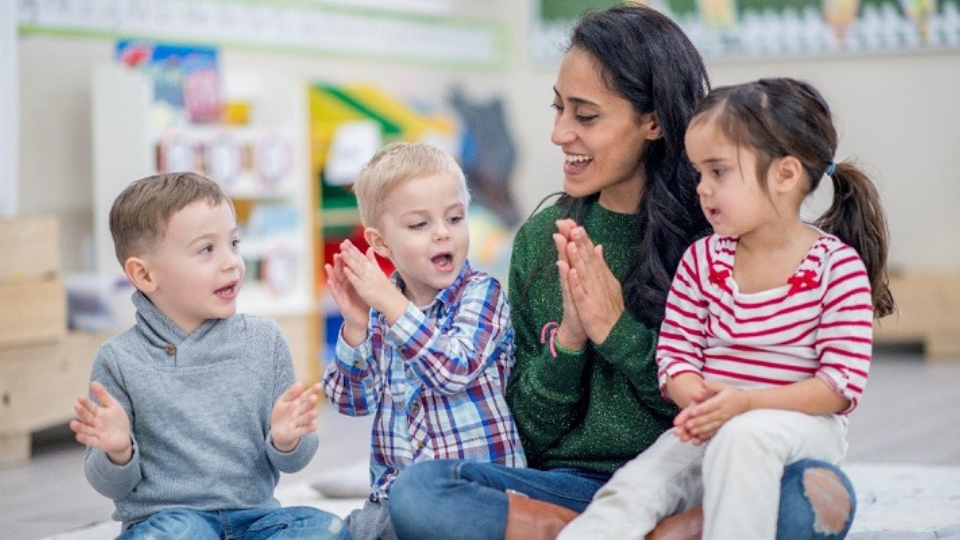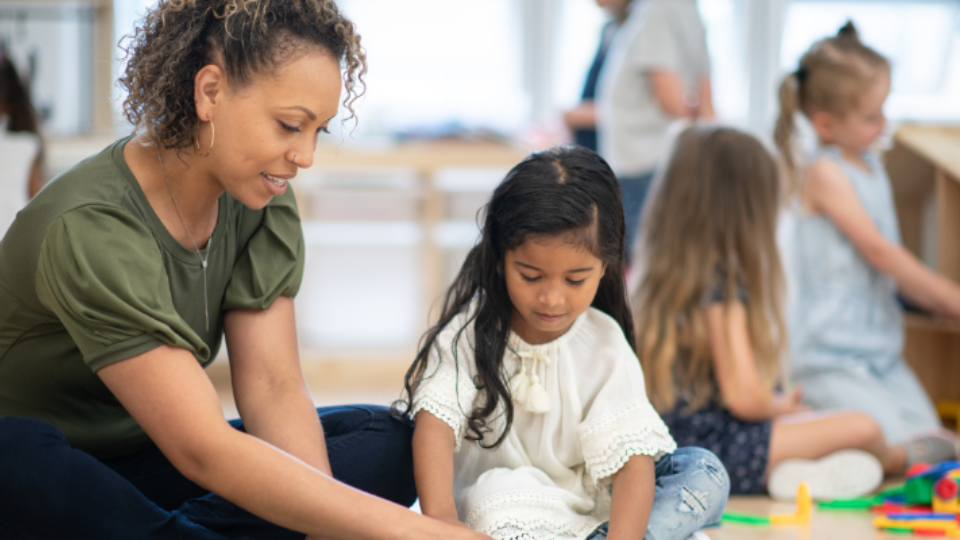The importance of early years education – and of play
The environments and education that young children are exposed to in their early years, the first five years of life, are of paramount importance. These early years are among the most formative of life, in which children learn faster than at any other time. High-quality early years education sets the foundation for lifelong learning and wellbeing: the basic cognitive and socio-emotional skills that they develop at this stage are fundamental to their future achievements, capacity to learn, relationship building and developing resilience.
Research has long demonstrated that play is essential to developing these skills. Indeed, the UK’s Early Years Foundation Stage, which we support through our Early Years Professional Development Programme, is built on a foundation of play. Young children are active learners for whom play is innate: they have a natural drive to explore the environment around them through their senses, rich-open-ended opportunities, and first-hand experiences. Play supports their learning and development across all areas of the UK’s Early Years Foundation Stage – from communication and language to physical development and making sense of the world. Play nurtures children’s imaginations and creativity, and helps them to develop social skills, gross and fine motor skills, and – crucially – confidence and independence.
What does this mean for early years practitioners?
Children need opportunities for both adult-led and child-initiated play as they gain different skills from each. A combination of the two kinds therefore best supports a child’s holistic development. This has clear implications for early years practitioners and the settings they work in.
Firstly, in seeking to ensure high-quality early years education, practitioners need to carefully reflect on their provision to ensure it meets the developmental needs of children in their care. For example, the need for both child-led and adult-led play should be reflected in their environment, so early years settings should be set up in such a way that children can engage with toys and activities without the need for their practitioner to constantly assist them. Toys, for instance, should be accessible at the child’s own height, and children should be free to move between areas, such as going inside or outside, when they like. Practitioners should plan their environment to be enabling – and safe – for all children to explore and learn from, in addition to providing spaces for adult-led activities such as crafts and other activities that will stretch children’s development in targeted areas. The environment should also include resources and opportunities for open-ended play, with resources which can be played with in multiple ways. A bike, for example, will always be a bike, but a box could be played with as a rocket, a car, a den, or a hiding place. These open-ended resources allow all children to develop their imaginative and creative thoughts.
Adult-led play and activities also need to be given careful consideration by practitioners to ensure they meet children’s developmental needs. This is especially important because children learn holistically: one activity can cover a wide range of areas of development and learning. According to best practices, early years practitioners need to ensure that all activities are child-centred, and tailored to the individual needs of the children present to allow them to participate and learn from the experience. This may be challenging in light of the different ages and stages of development of the children in a setting. It is important to remember that each child is unique and will learn at their own pace: this means even though they are the same age as another child, they may be at a different stage of development according to the Early Years Foundation Stage. Likewise, children can fall into different age and stage groups for different areas of their development – for example, a child may be advanced in personal, social and emotional development but struggle with expressive arts and design. Regardless of these individual needs, all activities offered in a setting should be enabling to ensure all children can participate and engage with the activity.
Fundamentally for early years practitioners, children also need high-quality interactions with adults to support them in their development. Research-informed best practice encourages early years staff to not only role model to children – which they may see reflected in children’s play as they learn and imitate behaviours – but also to engage with children while they play to develop their learning. This may involve questioning children about what they are doing and commenting on their play to promote sustained shared thinking. In addition, practitioners need to foster effective partnerships with parents and carers, who know their children’s skills, strengths and areas for development best. Partnership working between parents and carers and practitioners can help to ensure that a child’s individual needs are well supported through appropriate engagement in an early years setting.
Essential support for early years practitioners
There are clearly many ways in which early years practitioners can support the development of young children – not least in how they facilitate play – but this is a huge task which requires expertise, knowledge and opportunities for reflection. Effective professional development is critical to helping these early educators succeed and promote the best learning outcomes for the children in their care. It not only builds their professional knowledge, equipping them with the latest research-informed strategies to support children’s early learning, but it also helps to raise the professional status aligned to the early years sector, in line with that of educators who work with older children. Participation in such professional development, especially where it is not mandated, also demonstrates that a practitioner values their own development and the potential benefits this will bring not only to their professional life, but also the children they care for. This is especially the case where professional development programmes point practitioners to reflect on their practice and environment and identify areas and actions for improvement.
Such reflection and improvement processes are arguably more effective where professional development also provides peer support, which enables practitioners to learn from each other and to feel encouraged in their development. In our own Early Years Professional Development Programme in England, collaboration through webinars allows early years practitioners to build communities of practice through which they can work to solve some of the issues they face in their individual settings. These communities allow for discussions of practical tips and adaptations that can be made, with input from peers whose settings excel in different areas. For example, where one setting needs to do more to promote language development (for example, where children may speak other languages at home), practitioners from other settings can advise on potential changes that could be made to the play environment or activities to support this.
This is especially important in the wake of the Covid-19 pandemic, the effects of which continue to be felt in many early years settings. Lockdowns resulted in a significant impact on children from deprived areas falling further behind than their peers in their development. Professional development for early years staff helps them to recognise new strategies for supporting these children and to enhance their provision in line with their specific needs. The latest iteration of the Early Years Professional Development Programme is tailored towards the areas of development which were most impacted by pandemic restrictions. Likewise, the Early Years Professional Development Programme builds on practitioners prior knowledge to ensure this can be enriched to help bridge the learning gaps that have emerged between advantaged young children and their less advantaged peers. The importance of early years for development and longer-term learning outcomes is too significant to let these gaps go unaddressed, so high-quality professional development opportunities for early years staff have arguably never been so important. A highly knowledgeable team of early years practitioners who understand what excellent provision looks like – and the centrality of play to learning – will be key to early learning recovery in the years to come.
To find out more about our Early Years Professional Development Programme, please visit our programme page: https://www.earlyyearspdp.com/about-the-programme






